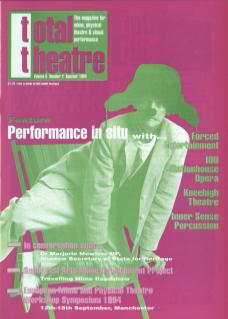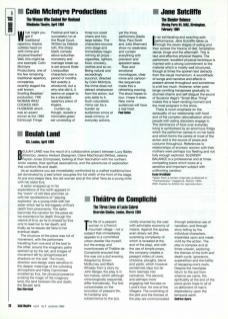The life of a peasant woman in a French mountain village – not a subject that immediately appeals to a committed urban-dweller like myself, but the energy and inventiveness of Théâtre de Complicité ensured that this was not a dull evening. Adapted by Simon McBurney and Mark Wheatly from a story by John Berger, the play is in two halves, which although chronologically sequential, differ thematically. The first concentrates on the evocation of peasant life, its hardship and subservience to the soil, vividly enacted by the cast with admirable economy of means. Against the sparse, even dreary set (the surprising complexity of which is revealed at the end of the play), and with the use of simple props, the company creates a peasant milieu of cows, chickens, ploughs, barns and yards, which however sometimes slips too far from rawness into caricature. The second, and perhaps more engaging half, focuses on Lucie's love for one of the villagers. The unwinding of the plot and the themes of the play are communicated through extensive use of narration, and through storytelling by the individual characters, expanded upon and made vivid by the action. The play is complex and at times uneven, exploring the themes of the birth and death cycle, ignorance, superstition and the futility of escaping one's roots. Despite the inevitable return to the soil from whence we came, the spirituality at the end of the piece gives hope to all of us abhorrent of man's dependency upon the temporal earth.

